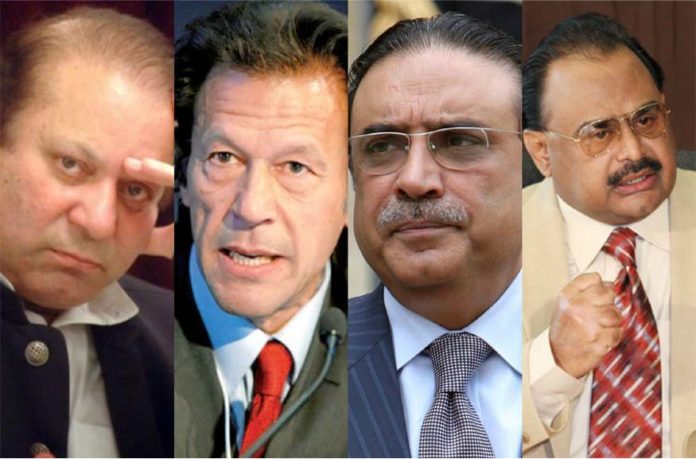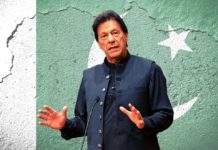Disclaimer: The Eqbal Ahmad Centre for Public Education (EACPE) encourages critical and independent thinking and believes in a free expression of one’s opinion. However, the views expressed in contributed articles are solely those of their respective authors and do not necessarily reflect the position or policy of the EACPE.
Pakistan has become a battlefield of political conflict. It is a political contest between new moneyed class and old moneyed class. Both are born out of black money, both are product of contacts and contracts. But the former is adhering to post material aspects like accountability, corruption and change; while latter is referring back to material aspects of modern life like social development and economic growth. What is worrying about all new politics is the demise of objective reality and arrival of subjective interpretation in an atomized domain giving birth to conspiratorial idealism in youth and middle class. The ethos of old class are rooted in pro-democratic dispensation of polity as it sees it the only way to stay in politics; while new class favours fascist, authoritarian mode of governance to implement agenda of politics based on self-concocted notions of normative justice and post material values. Hence, leader not character, masculinity not equality, blaming not reality, scapegoating not factual data have become instrumental in the hands of new moneyed class to unleash tirade of attacks on old, traditional political class.
What’s wrong with new politics in an age of hyper-reality is that it has eroded the very fabric of moral paradigm which was once deeply associated with traditional political framework. In traditional politics, morality on issues like corruption, accountability, rule of law and national interests are closely aligned with constitutional and legal structure of the state. State, as an oppressive organism, also contains seeds of developmental agenda which can elevate people from abysmal state to a livable lifestyle. Secondly, the modern concept of justice and judiciary are check on the arbitration of the state and its institutions through rule of law. Thirdly, democratic dispensation of governance brings in marginalised ethnic, social and religious communities into mainstream politics. Hence, through constant functionality of democratic system, state not only holds monopoly over violence, but also become accountable to people.
The politics of cyber space is very different from ground realities exhibiting contradictions in people’s behaviour.
New politics operated through social media and expressed through right-wing populism has challenged all the moral paradigm of public and political interest of the community through subjective musings. Every serious issue is under attack of ridicule and scapegoating. The recent example is disqualified PM Nawaz Sharif’s GT Road rally. The question of ‘Mujhay Kyun Nikala’ could not generate serious debate on why it is always elected ones who are packed home without exercising their constitutional rights fully or completing their tenure. Secondly, the moral connotation associated with question is that ‘the lame excuse of Aqama was very fragile.’ Even concepts like ‘Naya Pakistan’ are ridiculed beyond imagination instead of debating on its purported contours and how exploitative structure of traditional politics would be eradicated in Naya Pakistan (New Pakistan). Moreover, how the relationship between structure and agency, state and society would be altered? What are means through which ambiguous ends of Naya Pakistan will be attained as often repeated by PTI? How relationship betwixt caste and electioneering will be transmuted and how administrative wings of state be made transparent? Last, but not the least, how indigenous model of economic growth would be formulated and state’s role as peripheral state in global capitalism be minimised?
The reason behind all this idiosyncratic behaviour of people is their populist expressions through new means of communication of which new moneyed class is voracious consumer. The politics of cyber space is very different from ground realities exhibiting contradictions in people’s behaviour. Therefore, the rationale and the logic are supplanted by conspiratorial idealism and postmodern liberation which tend to emancipate people from shackles of traditional political system without realising the fact that it is just old wine in new bottles–even bottles have cracks of opportunism and narcissism.
Contributed by Hammad Raza







